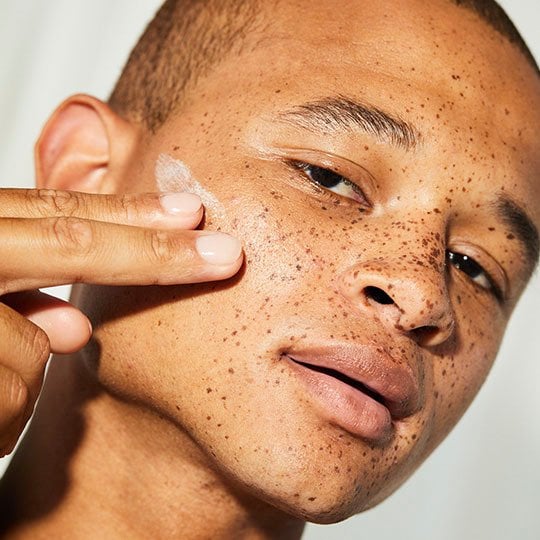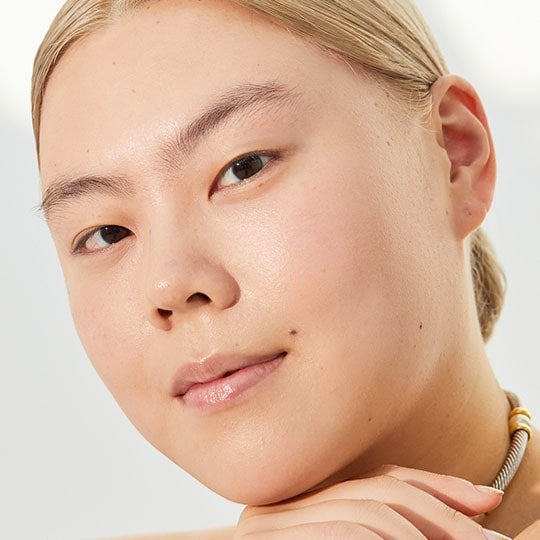5 Anti-Aging Myths You Should Absolutely Not Buy Into
August 02, 2016
You may think your skin care routine is sacrosanct, but there’s a (big) chance you’re falling for one of the many anti-aging myths floating around in the industry. And surprise, surprise, the false information is quite damaging. Why take the risk? Below, we’re setting the anti-aging record straight, once and for all.
MYTH #1: THE MORE EXPENSIVE AN ANTI-AGING PRODUCT IS, THE BETTER IT WORKS.
More important than the price tag is the formula. It’s absolutely possible to find an uber-expensive product with fancy packaging working less powerfully than one you picked up at the drugstore for less than $10. That’s because product efficacy does not always mimic its price. Rather than getting hung up on the cost of the item (or assuming that a pricy serum will work wonders for you), scan the package for ingredients that have a track record of performing well on your skin. Keep an eye out for keywords like “non-comedogenic” if you have oily skin, and “fragrance-free” if you’re sensitive. Keep in mind, however, that some products really are worth the splurge!
MYTH #2: YOU DON’T NEED SUNSCREEN ON A CLOUDY DAY.
Ah, this one is a classic slip-up. It seems logical to assume that if we can’t physically see or feel the sun on our skin, it must not be at work. Truth is, the sun never takes a break—even when there’s cloud cover. The sun’s harmful UV rays are one of the biggest culprits of skin aging, so don’t let your skin go unprotected, or allow your daily SPF application to fall to the wayside, ever. Wear broad-spectrum SPF 30 or higher every day, rain or shine, before heading outdoors.
MYTH #3: MAKEUP WITH SPF IS JUST AS GOOD AS SUNSCREEN.
While opting to use a moisturizer with a little SPF or an SPF-formulated BB cream is recommended (so long as it boasts an SPF of 30 or higher), it may not mean you’re fully protected from the sun’s harmful rays. Fact is, you may not be using enough of it to get the protection you need. Veer on the side of safety and apply sunscreen underneath your makeup application.
MYTH #4: ONLY YOUR GENES DETERMINE HOW YOU AGE.
This is somewhat true, as genetics do play a role in how your skin ages. But—and this is a big “but” to consider—genetics aren’t the only factor in the equation. As we get older, collagen and elastin production slows down (typically in our late twenties or early thirties), as does our cell turnover rate, a process by which our skin produces new skin cells and then sheds off the surface of skin, according to board-certified dermatologist, and Skincare.com expert, Dr. Dendy Engelman. Additional factors that can (prematurely) age skin include free radical damage from sun exposure, stress, and pollution, as well as poor lifestyle habits such as an unhealthy diet and smoking.
MYTH #5: WRINKLES ARE FORMED BY SMILING TOO MUCH.
This is not entirely false. Repeated facial movements—think: squinting, smiling, and frowning—can lead to fine lines and wrinkles. As skin ages, it loses its ability to bump those grooves back into place and they can become permanent on our complexion. However, it’s not recommended to stop showing emotions in your face. Not only is being happy and less stressed beneficial for anti-aging purposes, it’s ludicrous to boycott those big belly laughs just to (maybe) starve off a few wrinkles.




.jpg?cx=0.490000009536743&cy=0.540000021457672&cw=150&ch=120&blr=False&hash=0B0F55675A6B9FE3724F6E2EC9118A01)









.jpg?cx=0.490000009536743&cy=0.540000021457672&cw=150&ch=120&blr=False&hash=5E78490B76BBC8CC9D76D2EBDFF515E0)










